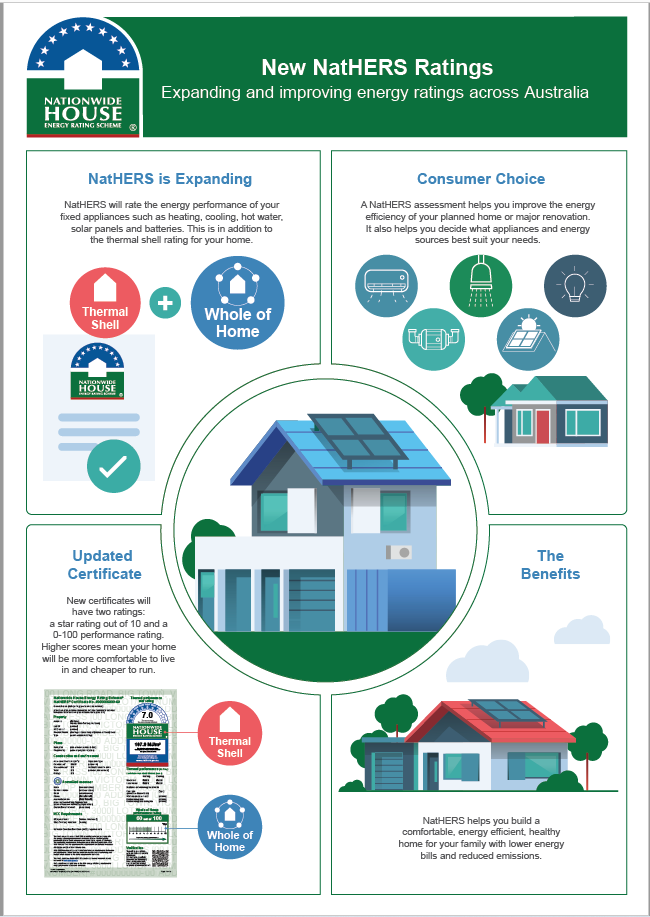
The release of NCC 2022 brings major changes to Energy Efficiency. What do you need to know for your projects?
1. 7 Star Minimum
The new minimum house rating required for new homes is 7 Stars (out of 10). Previously it was 6 Stars, so this is a significant increase. You may have heard about other changes, so here are some answers to some Frequently Asked Questions:
- What about Queensland (which currently allows for 5 Star compliance in many circumstances)? On 26 August 2022, Building Ministers (including Qld), from across Australia agreed to the new NCC provisions. However, we have not yet been informed if, when & how the Qld Development Code will be updated to bring it into line with NCC 2022. Stay tuned on this one.
- What about NSW? BASIX will continue to apply, and will introduce maximum Heating and Cooling Load Targets into line with the 7 Stars in Oct 2023.
- Are the nominal credits still allowed? Yes, in Climate Zones 1 & 2
- Will Deemed to Satisfy Elemental still be applicable? Yes, for both Star Ratings and WOH
- What about Climate Files? The climate files are used to predict the home’s internal temperature and thermal-comfort energy use which then informs the Star Rating. These are being updated along with the Heating and Cooling Limits and Star bands. This means that in some cases, achieving a 7 Star Rating with the new files and bands will not be as difficult as achieving it currently.
- Is thermal bridging being modelled by the software? The NatHERS Software (and DTS Elemental) will incorporate the effect of thermal bridging for steel framed external walls/roof/floor only
2. Whole of Home
In addition to the 7 Star Rating, NCC 2022 introduces the new “Whole of Home” (WOH) rating. This is a separate rating out of 100 which scores the energy performance of major appliances such as hot water, heating and cooling, lighting, pool and spa pumps, as well as any contribution made from energy generated or stored onsite (most typically from rooftop solar photovoltaic systems).
The energy value of a building’s main domestic services must not exceed 70% of the energy value of 3 Star heating and cooling, 5 Star gas hot water and 4 W/m2 for lighting. Many homes are going to need Solar in order to meet this new energy standard.
3. What are the implications for my projects?
BERA was recently invited to participate on a panel discussion answering this very question. You can read our answers here.
4. Timeline for Energy Efficiency Changes
1st September, 2022 – NCC 2022 released
1st October, 2022 – NCC 2022 applicable on a voluntary basis
1st May, 2023 – NCC 2022 non-Energy Efficiency provisions applicable
1st October, 2023 – NCC 2022 applicable on a compulsory basis
Assistant Minister for Climate Change and Energy Jenny McAllister said the changes will mean more homebuyers will have access to energy efficient and comfortable homes that cost less.
“With more than 150,000 houses built every year, these efficiency measures will help constrain energy demand which is vital to support the economy’s transition to net zero.”
